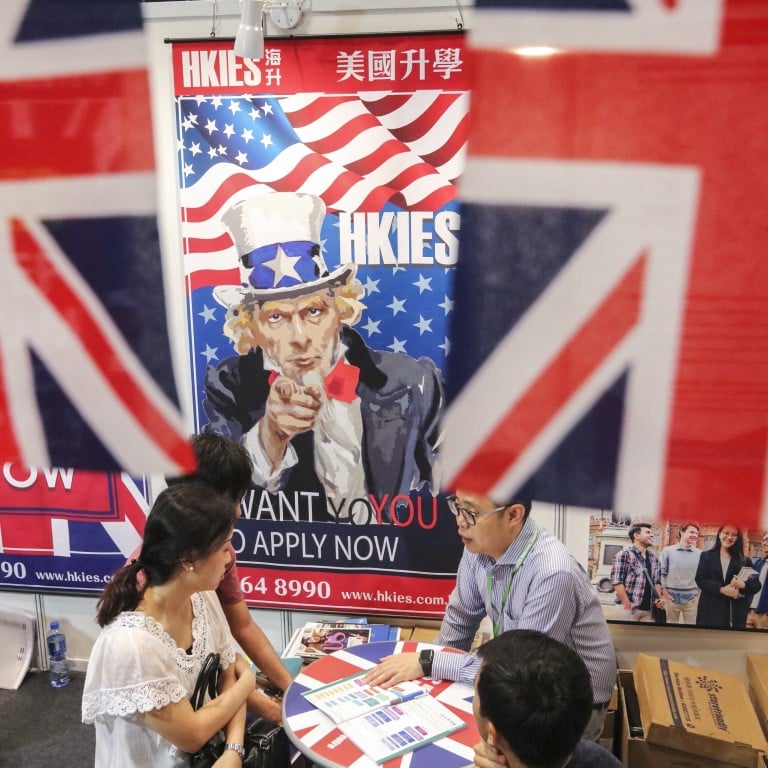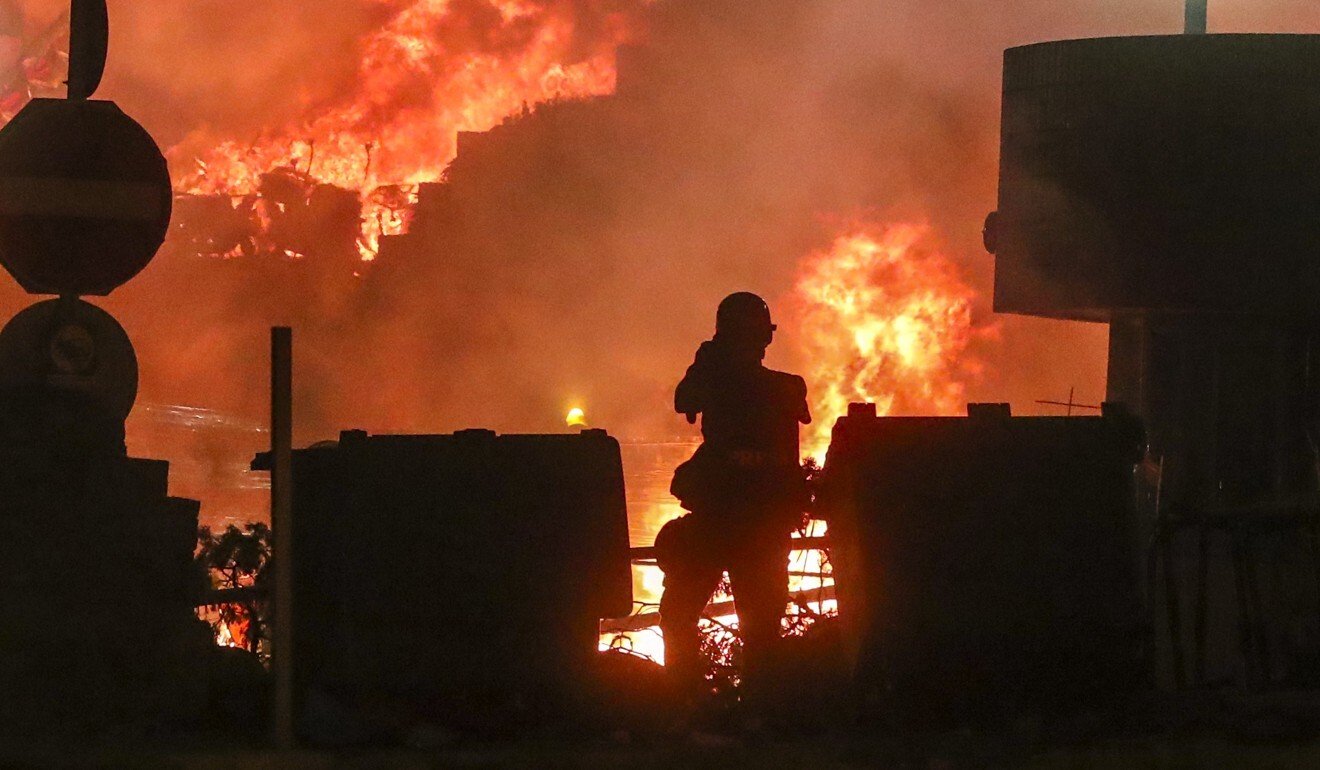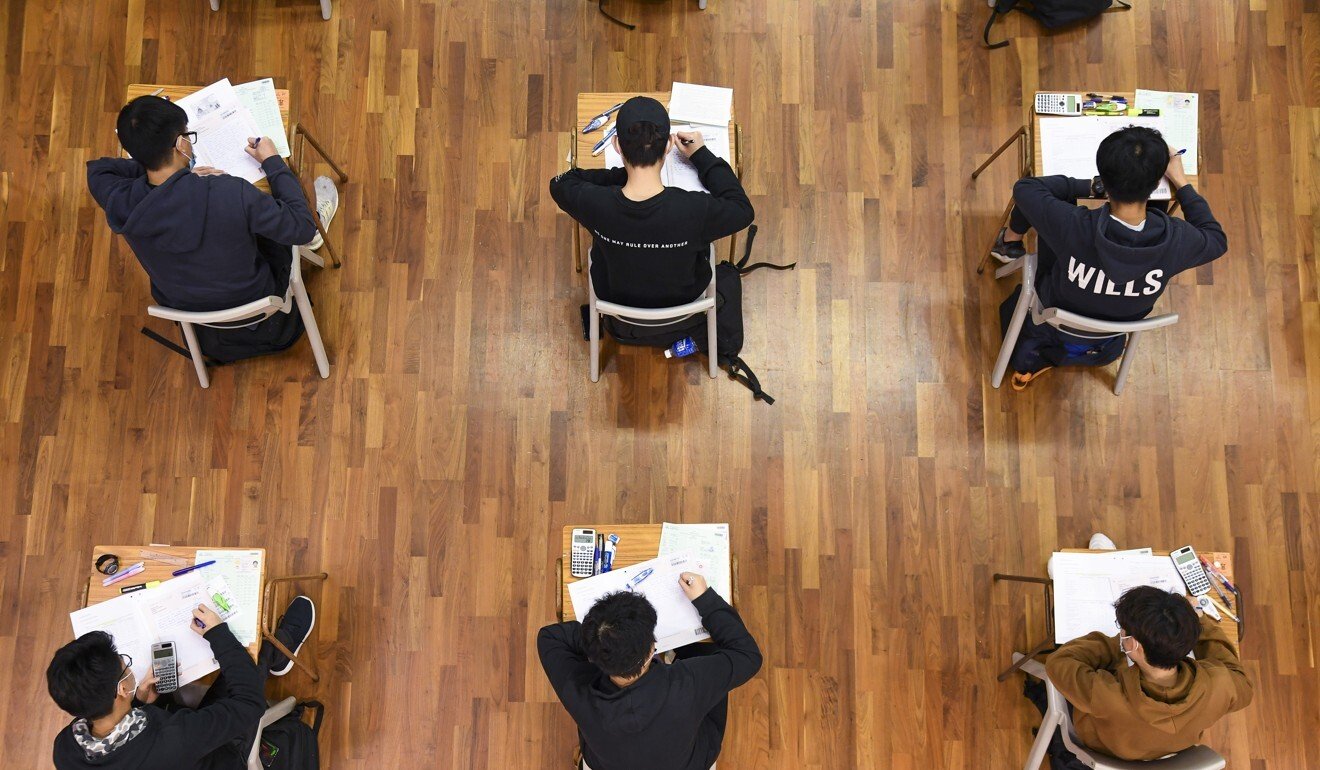
Applications to universities outside Hong Kong soar amid concerns over protests, looming national security law
- Applications to schools in Taiwan jump an eye-popping 69 per cent, while British, Australian schools up 50 per cent and mainland institutions see 13 per cent increase
- But students who spoke to the Post said they still preferred to remain in the city if accepted by their top choices
Thousands of secondary school graduates apply to universities in mainland China and Taiwan every year, but the latest figures show the number of applications for each has jumped significantly, by 13 and 69 per cent, respectively.
Education consultancies have also reported that the number of enquiries into popular overseas destinations such as Britain and Australia have risen by as much 50 per cent compared to last year.

There were only about 52,000 candidates who took the local university entrance Diploma of Secondary Education (DSE) exam this year, a record low since the new testing system was introduced in 2012, due to an ongoing drop in the number of secondary school seniors over the past decade.
Students who spoke to the Post said both the months-long protests and the proposed national security law were factors that encouraged them to apply to overseas and mainland universities, though they still preferred to study in Hong Kong if admitted to their top choices.
China Education Exchange (Hong Kong) Centre Limited, which has been facilitating applications to mainland schools for nine years, said the 3,993 applications it received this year – a record high – represented a 13 per cent increase from 2019.

The number of bachelor's degree hopefuls to Taiwanese universities, meanwhile, surged by eye-popping 69 per cent, to 3,603. The number of applicants last year was 2,129, according to figures provided by the Taipei Economic and Cultural Office.
Aston Education, which assists Hong Kong pupils seeking to pursue their studies at British and Australian high schools and universities, said they have recorded a roughly 30 to 50 per cent increase in enquiries from parents and students compared to last year.
Litz USA Student Service, an education consultancy that focuses on schools in the United States, said the number of enquiries were up “slightly” this year, despite uncertainties about whether face-to-face classes would be able to resume by the beginning of the school year amid that country’s still-roiling pandemic situation.
Councils of eight universities in Hong Kong back new security law
Analysts and consultants who spoke to the Post said the city’s anti-government demonstrations, which first erupted last June over a now-withdrawn extradition bill, were one of the top reasons mentioned by parents considering sending their children away.
“Some parents [who asked about studying on the mainland] have expressed worries about events such as violent clashes last year on university campuses including Polytechnic University and Chinese University. They are concerned if similar incidents would happen again,” China Education Exchange director Gong Wan said, referencing high-profile November clashes between police and radical protesters.

“They worry that if university campuses are unsafe, students might not be able to focus on their studies,” he added.
Jason Ng, an assistant manager at Aston Education, also said he had heard from parents worried about the city’s stability after last year’s social unrest, with some hoping to pave the way for their children to move overseas.
A Form Six student surnamed Pang, 18, who has applied to universities in Hong Kong, mainland China and Singapore, said his primary concern when it came to choosing a school was the institution’s reputation and the opportunities for future development.
There are different opportunities … some Hong Kong law firms are also interested in people who have knowledge of the mainland legal system
“The threshold to get into some universities in mainland China might be lower than that of local universities,” said Pang, who has applied to several mainland universities to study law.
“Plus, there are different opportunities … some Hong Kong law firms are also interested in people who have knowledge of the mainland legal system.”
He added that while he supported the pro-democracy protests in the city, he believed “one’s political views should not limit one’s path”.
Samuel Ng, 17, said the city’s looming national security law had further prompted him to consider whether he should study elsewhere, as he fears a potential deterioration of freedom of speech and academic freedom in the city. At least one community college in the US had already granted him admission.
Most Hong Kong universities rise in QS global rankings despite disruptions from months of anti-government protests in city
“As I wish to study history or other arts subjects in university, there might be concerns for me as to whether I might ‘cross the red line’ during my research if I stay in Hong Kong,” he said.
The national security legislation, which is expected to be endorsed by Beijing on Tuesday, outlaws acts of secession, subversion, terrorism and foreign interference in the city, though critics worry it could be used to quash freedoms long enjoyed by Hong Kong.
But Ng, who was born in the US, said he still hoped to study in the city – provided he is admitted to his top choice, Chinese University, because of its reputation in the subject.
Tough ride ahead for Hong Kong graduates, as job vacancies fall 55 per cent amid economy battered by protests, pandemic
Ng Po-shing, of the Hok Yau Club, a student guidance centre, predicted the number of students applying to mainland China, Taiwan or overseas universities could continue to gradually increase in coming years due to the uncertainty over Hong Kong’s future.
But he also pointed out that the increase might be limited, as less competition for sought-after spots at local schools was expected given Hong Kong’s shrinking student population.
“Even if they have [asked about] or applied for overseas or mainland institutions, if there are more desirable offers locally, I believe some of them would still choose to pursue their studies in Hong Kong. Thus, we expect the rate of increase would not be huge,” Ng said.

